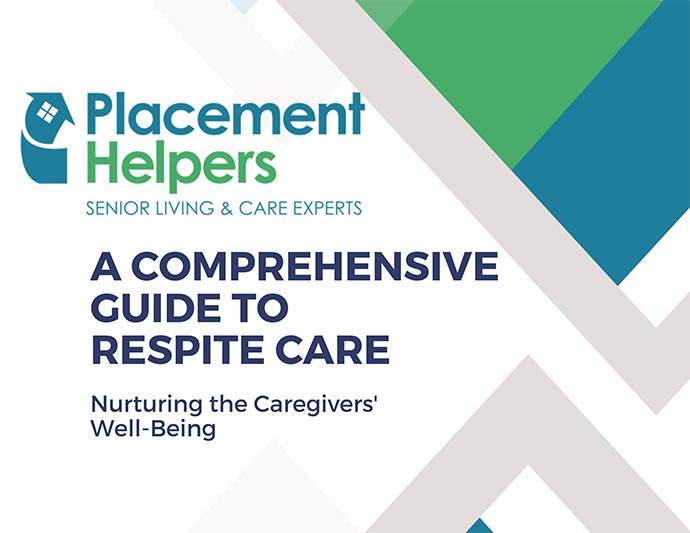A Comprehensive Guide to Respite Care
Nurturing the Caregivers' Well-Being
What Is Respite Care?
Respite care is a short-term form of care designed to provide temporary relief and support to primary caregivers of individuals with special needs, disabilities, or chronic illnesses. It offers caregivers the opportunity to take a break from their caregiving responsibilities, rest, attend to their own needs, or handle other personal obligations, knowing that their loved ones are well cared for in their absence.

Here are key aspects of respite care:
- Temporary Relief: Respite care provides a temporary break for caregivers, allowing them to step away from their caregiving duties for a defined period, which can range from a few hours to several days or weeks. This break offers much-needed rest and rejuvenation.
- Comprehensive Care: Respite care ensures that the individual receiving care is looked after and their needs are met during the caregiver's absence. This can include assistance with personal care, medication management, mobility support, meal preparation, and engaging activities tailored to the individual's interests and abilities.
- Flexibility and Customization: Respite care can be customized to meet the unique needs and preferences of both the caregiver and the individual receiving care. It can be provided in various settings, including in-home care, specialized respite care facilities, or through adult day programs.
- Support for Caregivers: Respite care acknowledges the physical, emotional, and mental well-being of caregivers. It offers them the opportunity to take a break, reduce stress, prevent burnout, and attend to their own health, personal needs, or other responsibilities. This support is vital for the long-term sustainability of caregiving.
- Family Involvement: Respite care can involve other family members, allowing them to participate in the caregiving process and share the responsibilities. It fosters a sense of support and shared care within the family unit.
- Enhanced Quality of Life: By providing caregivers with regular breaks and respite, respite care helps maintain the caregiver's overall well-being and improves the quality of care they can provide to their loved ones. It can contribute to a healthier, more balanced family dynamic.
Respite care services can be arranged through home care agencies, respite care programs, community organizations, or specialized respite facilities. It's important for caregivers to communicate their specific needs, preferences, and the level of care required to ensure a smooth transition during the respite period.
Respite care plays a crucial role in supporting caregivers and promoting the overall well-being of both caregivers and care recipients. It allows caregivers to recharge, reduce stress, and continue providing care in a more sustainable manner.
Who Is a Good Candidate for Respite Care?
A good candidate for respite care is a primary caregiver who provides ongoing care and support to an individual with special needs, disabilities, or chronic illnesses. Respite care is beneficial for a wide range of caregiving situations, and here are some indications that respite care may be suitable:

- Caregiver Fatigue or Stress: If the primary caregiver is experiencing physical or emotional exhaustion, stress, or burnout due to the demands of caregiving, respite care can offer them a much-needed break and an opportunity to recharge.
- Need for Personal Time: Caregivers may require time for their own self-care, attending medical appointments, running errands, or simply engaging in activities that promote their well-being and maintain their own quality of life.
- Balancing Multiple Responsibilities: Caregivers who juggle caregiving responsibilities alongside work, parenting, or other personal commitments may find respite care helpful in managing their various responsibilities and maintaining a sense of balance.
- Caregiver's Health Concerns: If the caregiver has their own health issues or needs medical treatments, respite care can provide temporary support and ensure that their loved one receives appropriate care during their absence.
- Family Events or Travel: Respite care may be beneficial when the caregiver needs to attend family events, celebrations, or travel that would be difficult to manage with their caregiving responsibilities.
- Enhancing Family Dynamics: Respite care can involve other family members in the caregiving process and promote shared responsibility, which can strengthen family relationships and provide a balanced caregiving approach.
It's important to note that respite care is not limited to a specific type of caregiver or care recipient. It can be applicable to various caregiving situations, including caring for children with special needs, older adults with chronic illnesses, individuals with disabilities, or those recovering from medical procedures.
Each caregiver's situation is unique, and the decision to pursue respite care should be based on their specific needs and circumstances. Respite care offers caregivers the opportunity to take care of themselves while ensuring their loved ones receive appropriate care from trained professionals or respite care providers.
Discussing respite care options with home care agencies, community organizations, or respite care programs can help determine the most suitable respite care services for the caregiver and their care recipient.
Respite Care Cost?
The cost of respite care can vary depending on several factors, including the location, type of respite care service, duration of care, and the specific provider or agency. Here are some factors that may influence the cost of respite care:

- In-Home Respite Care: If respite care is provided in the individual's home, the cost can vary based on the number of hours or days of care required. Hourly rates or daily rates may be charged, and additional charges may apply for weekends, holidays, or overnight care. In-home respite care may be more cost-effective compared to facility-based respite care.
- Facility-Based Respite Care: Facility-based respite care, such as adult day programs or respite care centers, may have different pricing structures. They may offer full-day or half-day programs, and fees can be based on daily rates, weekly rates, or monthly fees. Facility-based respite care may involve additional costs for transportation or specialized services.
- Type of Provider: The cost of respite care can vary based on the type of provider or agency offering the services. Nonprofit organizations or community-based programs may offer lower-cost or subsidized respite care options compared to private home care agencies. It's important to inquire about fee structures and any available financial assistance programs.
- Insurance Coverage: Some private health insurance plans or long-term care insurance policies may offer coverage for respite care services. It's important to review the policy details and check with the insurance provider to understand the extent of coverage, any limitations, and any cost-sharing requirements.
- Government Assistance Programs: There may be government assistance programs or funding options available to help offset the cost of respite care for individuals who meet specific eligibility criteria. These programs can vary depending on the country, state, or local jurisdiction.
It's advisable to contact local respite care providers, home care agencies, or community organizations to inquire about their pricing and any available financial assistance options. They can provide more detailed information regarding the cost of respite care services in your specific area.
Remember that the cost of respite care should be considered alongside the value it provides in terms of caregiver relief, improved well-being, and the overall support it offers to both caregivers and care recipients. Exploring financial resources and assistance programs can help make respite care more accessible and affordable for caregivers.
Types of Respite Care
There are various types of respite care available to meet the diverse needs of caregivers and care recipients. Here are some common types of respite care:
- In-Home Respite Care: In-home respite care involves a trained caregiver coming to the individual's home to provide care and support. This allows the caregiver to take a break while ensuring the care recipient remains in a familiar and comfortable environment.
- Facility-Based Respite Care: Facility-based respite care takes place in specialized care centers, adult day programs, or respite care facilities. Care recipients spend a specified amount of time in these facilities, engaging in activities, socializing with others, and receiving care from trained staff.
- Overnight Respite Care: Overnight respite care offers caregivers an extended break by providing care during the nighttime hours. Trained caregivers stay with the care recipient overnight, providing assistance, monitoring, and support while the caregiver gets much-needed rest.
- Adult Day Programs: Adult day programs provide care and socialization opportunities for older adults or individuals with disabilities during the daytime. These programs typically operate on weekdays and offer structured activities, meals, and supervision.
- Emergency Respite Care: Emergency respite care is available for caregivers who need immediate temporary relief due to unforeseen circumstances, such as a sudden illness or family emergency. This type of respite care can be arranged quickly to ensure the safety and well-being of the care recipient.
- Planned Respite Care: Planned respite care involves pre-arranged breaks for caregivers, allowing them to schedule regular periods of relief in advance. Caregivers can plan their breaks and make necessary arrangements for respite care during these designated times.
- Hospice Respite Care: Hospice respite care is provided to individuals receiving hospice care. It offers short-term relief to caregivers by admitting the care recipient to a hospice facility for a limited period. This allows the caregiver to rest while the care recipient receives specialized care.
- Volunteer-Based Respite Care: Some community organizations or support groups offer volunteer-based respite care. Trained volunteers provide companionship and support to the care recipient, offering the caregiver a temporary break.
- Family Respite Care: Family respite care involves enlisting the help of family members or friends to provide temporary relief to the primary caregiver. Family members take turns caring for the individual, allowing the caregiver scheduled breaks.
These are general types of respite care, and the availability of specific services may vary depending on the location and resources within a given community. It's important to inquire about the different types of respite care available in your area and choose the option that best suits the needs of both the caregiver and the care recipient.
At Placement Helpers we are a trusted resource that works with a vast network of over 10,000 senior care facilities and caregiver agencies. If you are seeking a referral to a respite care facility or services, reach out to us directly 855-701-8090. We can provide personalized assistance and guide you through the process of finding a suitable respite care option for your specific needs.











